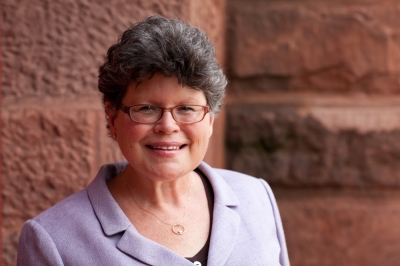Christians Risk Their Lives to Attend Worship in Nigeria: 'This May Be Our Last Communion'

What goes through the minds of American Christians going to church on Sunday? Perhaps something along these lines:
"The service had better not go over time this week!"
"I'll go bonkers if we sing that same song again!"
There have been tragic attacks on American churches, such as the recent horrific murder of nine African American Christians at Emmanuel A.M.E. Church in Charleston, but I don't know any American Christians who go to church consciously thinking, "I may die today, but I am going to church; I don't know what will happen, but Jesus is with me."

Not so for our Christian brothers and sisters in northern and central Nigeria. Since the advent of attacks by jihadist terrorist group Boko Haram — and, to be honest — even long before then, from other Islamists who still also commit atrocities — no Christian can know for sure that if they go to church, they will be alive to return home again.
Christian human rights organization Jubilee Campaign monitors attacks on Nigerian citizens by Boko Haram and Fulani Islamists.
In their recent report to the U.N. Human Rights Council they stated, "approximately 42% of all the attacks that occurred in the Federal Republic of Nigeria for the year 2014 were on Christian communities, while Muslim communities, the government, schools, media and medical personnel, and random civilians comprised approximately 6.8%, 10.9%, 4.1%, 0.5%, and 35.4% respectively."
A few years ago, data compiled by Jubilee Campaign indicated that in 2012 Nigeria alone accounted for over 60 percent of Christians killed globally. And the situation has not improved.
Jubilee Campaign's 2015 U.N. report documents attacks on churches with hundreds being killed and tens of thousands displaced from their homes. This reality was brought home to the Institute on Religion and Democracy in a more personal way earlier this week when we hosted two Nigerian Christian leaders from a region particularly targeted by both Boko Haram and the Fulani. (To protect the identity of these leaders I will call them Reverend O and Reverend M.)
Reverend O told how he had been leading a service of Holy Communion when his church was attacked by Muslims from the local mosque.
"I don't like telling this story because it makes me cry," he admitted, but added that he thought it was important for us to hear. He continued that the Muslims had left their mosque and surrounded the church where they began stabbing and slashing at people with knives, and committing "all kinds of attacks."
"We tried to gather up the children and get them out or hide them," Reverend O said. His voice faltered and he was silent for a moment as a tear rolled down his cheek. "My daughter was among them," he told us. Then he asked the people, "Do you want me to close the service so you can escape?" After pausing to remove his glasses and wipe his tear-filled eyes, Reverend O continued, "They said to me, 'You taught us that Jesus is worth dying for. This may be our last Communion. We will take it and die.'"
As we all sat in silence, grieving along with Reverend O, our other guest, Reverend M revealed, "By some miracle, they were saved." Reverend O's congregation did not die that day, thanks be to God. But many church congregations in northern and central Nigeria have not been spared. Islamist mobs have set church buildings on fire and prevented the men, women, and children from escaping — standing at every door and window with automatic weapons. Others have been suicide bombers and car bombs and killed dozens of church goers — a new phenomenon in Africa's most populous country.
In future posts I will talk more about the lessons learned from Reverend O and Reverend M, and about what we Christians in the West can actually do to help our brothers and sisters in Nigeria and elsewhere who are suffering for the sake of the Gospel. But for now, when you are getting ready to go to church each Sunday, let the experience trigger the memory of Christians who attend services in northern and central Nigeria not knowing whether or not they will survive the day. Thank the Lord for your ability to worship Him in freedom, and pray for our Nigerian brothers and sisters.





















